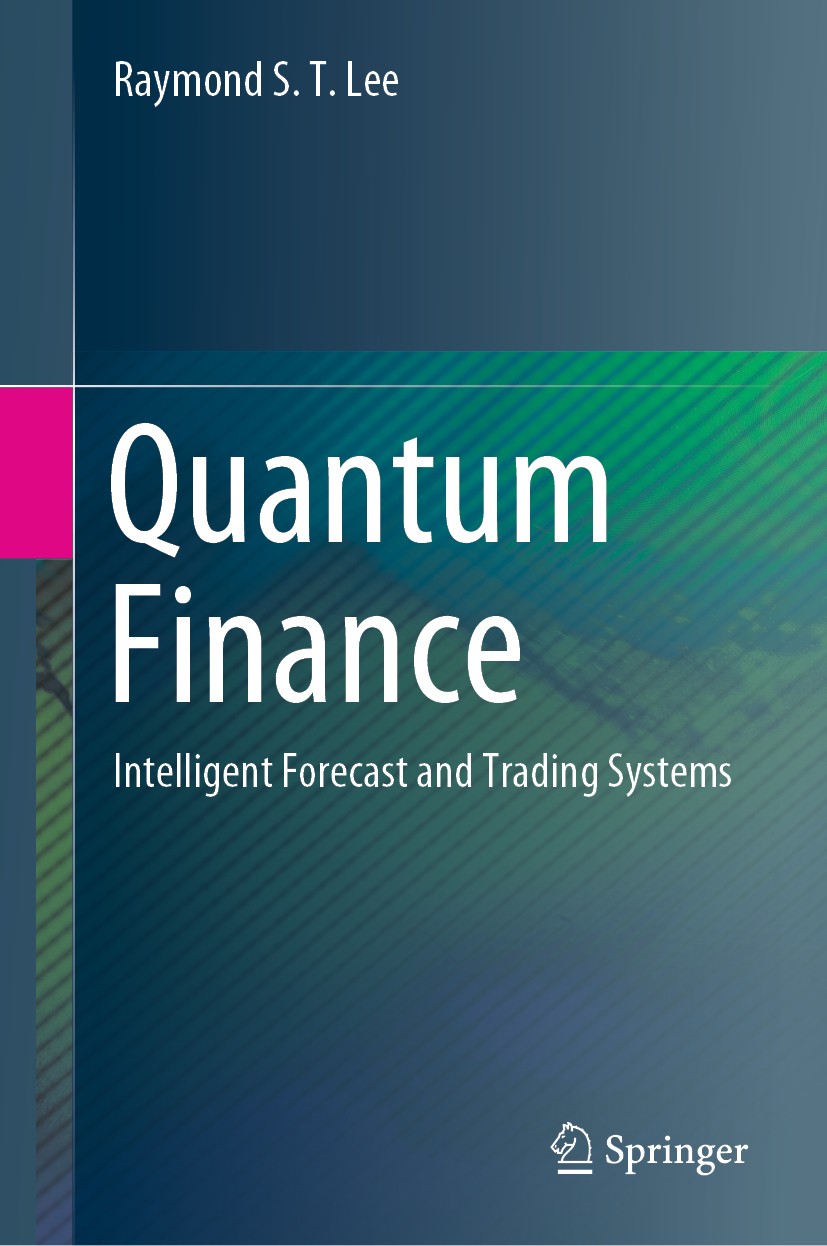Quantum Finance is the application of quantum computing in financial modeling and analysis. It leverages quantum algorithms to solve complex financial problems.
The emerging field of Quantum Finance represents a paradigm shift in computational finance. It intersects the principles of quantum mechanics and sophisticated financial market models. The utilization of quantum computers promises to exponentially speed up calculations for options pricing, risk management, and arbitrage opportunities.
Financial institutions anticipate quantum finance to revolutionize trading strategies, asset pricing, and data encryption. As quantum technology progresses, professionals in this field are preparing for a future where quantum advantage plays a critical role in gaining a competitive edge in the financial markets. Early adoption of quantum finance tools could mean unprecedented precision and efficiency in market predictions and decision-making processes.
Quantum Finance: Unveiling The Connection
Imagine a world where financial decisions are faster, more accurate, and far beyond human capabilities. This is the promise of Quantum Finance, the exciting new field where the worlds of high finance and cutting-edge quantum computing collide. It’s a pioneering approach poised to revolutionize the industry. Let’s explore what happens when quanta and cash flow combine.
The Fusion Of Quantum Computing And Financial Models
In quantum finance, lightning-fast quantum computers work with complex financial models. These models were once too complicated for traditional computers. Quantum computers use qubits to process vast amounts of data at unprecedented speeds. This fusion enables breakthroughs in key areas:
- Portfolio optimization: Finding the best mix of investments
- Risk analysis: Understanding potential future scenarios
- Option pricing: Calculating the true value of financial derivatives
Financial experts can make better decisions with these tools at their disposal.
Impact Of Quantum Technology On Market Predictions
Quantum technology is set to dramatically change the game for market predictions. Its superior computational power can handle the complexity of markets with ease. Here are a few key impacts:
| Impact | Description |
|---|---|
| Speed | Analyses that took days will take seconds. |
| Accuracy | Models predict market movements with high precision. |
| Complexity | Can unravel patterns previously unseen. |
Traders and investment firms will gain early insights, ensuring a competitive edge.
Navigating The Quantum Realm
In the world of finance, a revolution brews. It comes from the quantum realm. This isn’t science fiction. It’s quantum finance. Traditional models take a back seat. Quantum computing leads the charge. It solves complex financial models like never before.
From Bits To Qubits: An Intro To Quantum Mechanics
Forget bits. Qubits change the game. They are quantum bits. A classical bit is a one or a zero. A qubit can be both at once. This is due to superposition. It’s a fundamental quantum principle.
- Classical Bit: Just one state at a time.
- Qubit: Multiple states. Think of it as being in two places at once.
Entanglement is another quantum trick. It links qubits, regardless of distance. Change one qubit. The linked one changes too. Imagine the speed and potential!
With quantum computing, finance problems get easier. Calculating risk? Faster. Asset pricing? More accurate. Portfolio optimization? Next level.
The Language Of Quantum Algorithms: Understanding The Basis
Quantum algorithms speak a different language. It’s not zeroes and ones. It’s probability and amplitude. This language processes information in new ways. It can search databases unimaginably fast. It factors large numbers, crucial for cryptography.
| Classical Algorithm | Quantum Algorithm |
|---|---|
| Binary operations | Amplitude manipulation |
| Sequential processing | Parallel processing |
| Deterministic results | Probabilistic results |
Shor’s algorithm disrupts encryption. Grover’s algorithm accelerates searches. These are but two examples.
Imagine analyzing market trends faster than anyone else. That’s the power of quantum finance. It’s not just fast. It’s not just new. It makes the impossible possible.
The Financial Edge Through Quantum Computing
In the fast-paced world of finance, speed and precision are vital. Quantum computing is revolutionizing the industry, offering insights and control like never before. This advanced technology holds the key to unprecedented computational power, giving a competitive advantage to those who harness it.
Quantum Computing In Asset Pricing Strategies
Asset pricing models depend on complex calculations.
- Quantum computing analyzes market data faster.
- It explores multiple scenarios simultaneously.
This means assets can be priced with greater accuracy.
| Traditional Computing | Quantum Computing |
|---|---|
| Limited scenarios | Multiple scenarios |
| Slower analysis | Real-time analysis |
Investors can rely on quantum for better decision-making.
Optimizing Portfolio Management With Quantum Enhancements
Balancing a portfolio involves picking the right mix of assets. Quantum computing takes this to a new level.
- Rebalance portfolios quickly.
- Reduce risk with precise calculations.
- Improve returns on investment.
The technology assesses countless portfolio combinations.
This helps identify the most efficient asset allocation.

Credit: medium.com
Challenges On The Road To Quantum Adoption
Quantum finance is a groundbreaking field merging quantum computing and complex financial modelling. It promises to revolutionize areas like asset pricing, portfolio optimization, and risk management. Despite its potential, significant challenges must be overcome to reap quantum technology’s benefits fully.
Technical Barriers In Quantum Computing Application
Integrating quantum computing into financial operations isn’t straightforward. The main technical hurdles include:
- Hardware instability: Quantum computers are sensitive to external disturbances, making them prone to errors.
- Limited qubits: Current quantum machines have few qubits, restricting complex calculations.
- Scalability issues: Expanding quantum systems while maintaining performance is challenging.
- Software ecosystem: Quantum programming requires specialized tools and expertise.
Security Concerns: Quantum Threats To Encrypted Assets
Quantum computing holds the power to break current encryption standards. This could affect financial data protection. Key security concerns include:
- Crypto-agility: Financial systems must upgrade to quantum-resistant algorithms.
- Data harvesting: Hackers could stockpile encrypted data to decrypt once quantum computing advances.
- Compliance and privacy: Regulations might not keep pace with quantum developments, risking data privacy breaches.
Financial institutions need robust quantum-safe security strategies to protect their assets.
Case Studies: Quantum Breakthroughs In Finance
Imagine a world where financial markets operate at incredible speeds and with astounding accuracy. Enter quantum finance, a realm where the principles of quantum physics intertwine with complex financial systems. In the following sections, we dive into real-world instances where quantum computing has made a significant mark on the financial industry.
Evaluating Quantum Success Stories In Trading
The trading world thrives on quick decisions and faster calculations. Quantum computers offer both. Here’s how:
- Optimization of Portfolios: Quantum algorithms assess risks and returns swiftly, enabling traders to optimize their portfolios rapidly.
- Prediction Models: Traders use quantum-powered models for price forecasting. These models process vast datasets efficiently.
- Arbitrage Opportunities: Quantum systems detect price discrepancies across markets in a blink, allowing traders to capitalize on arbitrage opportunities.
Case in point, financial firms experimenting with quantum technology report improved trade accuracy and speed, giving them a competitive edge.
Lessons From Early Quantum Financial Applications
Early adopters of quantum computing in finance offer valuable insights:
- Quantum computers can manage risk more effectively by simulating market scenarios far beyond the capability of classical computers.
- They also streamline complex calculations, such as those used in pricing derivatives, cutting down processing time from days to minutes.
- Adoption challenges persist, including high costs and a steep learning curve for developers and financial professionals alike.
Take, for example, a pioneering hedge fund that leverages quantum technology to design new financial products. These products profit from market inefficiencies that traditional computers cannot even perceive.

Credit: mustafamahrous.wordpress.com
Future Prospects Of Quantum Finance
The realm of finance stands on the brink of a transformative era, courtesy of quantum computing. Quantum finance integrates complex computations and simulations beyond the capacity of classical computing, paving the way for unprecedented advancements in financial modeling, risk management, and algorithmic trading. With its potential to solve intricate financial problems swiftly, quantum finance holds the promise of a new frontier marked by speed, precision, and innovation.
Preparing For The Quantum Leap In Financial Markets
The anticipation of quantum computing revolutionizing financial markets has led forward-thinking institutions to invest heavily in research and development. Here’s a glimpse of initiatives propelling markets towards a quantum future:
- Intensive research projects focusing on quantum algorithms for market analysis.
- Strategic partnerships between finance firms and quantum technology companies.
- Quantum computing platforms now accessible to financial professionals for testing.
- Workshops and courses equipping talent with quantum computing skills.
Envisioning Post-quantum Financial Infrastructure
Quantum finance promises to remodel the very infrastructure upon which our financial system operates. Financial giants prepare for a post-quantum world with state-of-the-art measures:
- Investment in secure quantum-resistant cryptography to safeguard data.
- Development of quantum-based pricing models for complex derivatives.
- Efficient portfolio optimization techniques using quantum algorithms.
- Enhanced predictive capabilities for market movements with quantum simulations.
Such innovative steps contribute to the robustness and advancement of post-quantum financial systems.

Credit: link.springer.com
Frequently Asked Questions On What Is Quantum Finance
How Does Quantum Finance Work?
Quantum finance applies quantum computing principles to financial problems, enabling faster data processing and complex simulations to optimize portfolios and price instruments. It leverages quantum algorithms for superior market analysis and risk assessment.
What Is The Quantum Theory Of Finance?
The quantum theory of finance applies principles of quantum physics to model and explain complex financial markets and investments. It incorporates uncertainty and the dynamics of market information, akin to the unpredictable nature of particles in quantum mechanics.
What Does Quantum Mean In Financial Terms?
In financial terms, “quantum” refers to the minimum amount of a currency or asset used in a transaction or investment. It signifies the smallest possible change or unit involved in financial operations.
What Banks Are Using Quantum Financial System?
No banks officially use a “quantum financial system” as it is a concept rather than a deployed technology. Discussions about quantum computing in finance explore potential future applications.
What Is Quantum Finance?
Quantum Finance is an interdisciplinary research field, applying theories and methods from quantum physics to solve complex problems in finance, such as option pricing and risk assessment.
Conclusion
Wrapping up our exploration of quantum finance, we’ve unlocked a vision where finance meets quantum theory. This innovative field promises advanced models for handling market complexities. It’s a frontier poised to revolutionize financial strategies and risk assessment. Embrace quantum finance’s potential to redefine our economic landscape tomorrow.











